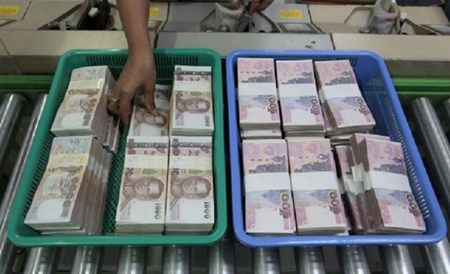The Thai baht is expected to strengthen, but only for the short-term after the European Central Bank (ECB) moved to inject 60 billion euro a month into their economy, aimed at spurring growth and averting deflation, said Ekniti Nitithanprapas, deputy director-general of the Fiscal Policy Office.
Ekniti said the baht had strengthened by 0.3 percent, which was considered too high. However, the gain is expected to last only for the short-term while the Bank of Thailand (BoT) would monitor the situation to ensure that the baht would not become more volatile.

He said the ECB had injected much more cash than earlier market expectations, weakening the euro currency immediately. The money flowed out to invest in equity and debt instrument markets overseas, pushing the Thai baht to become stronger.
The ECB announced Thursday the 60 billion euro monthly economic stimulus program that would continue through September 2016.
Currency traders welcomed the news as a positive measure toward fighting the persistent low inflation by weakening the euro, which would promote exports.
Finance Minister Sommai Phasee, meanwhile, acknowledged that the ECB decision would strengthen the Thai baht and impact exporters.
Sommai noted that regional currencies also strengthened while the BoT could still administer the value of the Thai baht by lowering the short-term interest rate in order to lower the pressure of capital inflows.
The Finance Ministry would at the same time speed government disbursement for expenditure so that money could enter the system to help ease the pressure, Sommai added.




